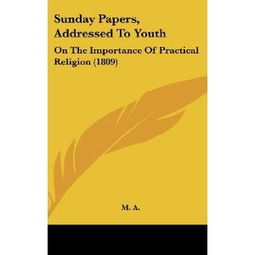The resident is the core of a community. They play a crucial role in maintaining the stability and development of the community. Residents contribute to the community through various means, such as participating in community activities, paying taxes, and abiding by community regulations. Their active involvement helps build a sense of community and promotes social harmony. In addition, residents are also the main consumers of community resources, and their demands and feedback can help improve the quality of community services. Therefore, it is of great significance to pay attention to the role and needs of residents in the community and to create a good living environment and development opportunities for them.
In a community, the resident plays a crucial role. A resident is not just a person who lives in a particular place; they are an integral part of the fabric that holds the community together. The actions, attitudes, and contributions of residents can have a profound impact on the overall well-being and functionality of the community.
One of the most important aspects of a resident is their sense of responsibility. Responsible residents take pride in their community and are actively involved in its upkeep and improvement. They are willing to participate in community activities, volunteer for local initiatives, and contribute to the betterment of the area. This sense of responsibility can lead to a cleaner, safer, and more vibrant community. For example, residents might volunteer to pick up litter in the neighborhood, organize community clean-up days, or participate in neighborhood watch programs. By taking these actions, they not only enhance the appearance of the community but also create a sense of security for themselves and their neighbors.
Residents also have the power to influence the character and culture of a community. The values and beliefs that residents hold can shape the community's identity. A community filled with kind, respectful, and inclusive residents is likely to have a positive and welcoming atmosphere. On the other hand, a community with residents who are intolerant or disrespectful may face challenges in terms of social harmony. Therefore, it is essential for residents to be aware of their impact on the community and strive to promote positive values. This can be achieved through open communication, respect for diversity, and a willingness to listen to the opinions and concerns of others.
In addition to their sense of responsibility and influence on the community's character, residents also have a significant economic impact. They are the consumers who drive local businesses and contribute to the local economy. When residents support local shops, restaurants, and services, it helps to create jobs and keep money circulating within the community. Moreover, residents can also play a role in attracting new businesses and investments to the area. A community with a strong and active resident base is often more appealing to potential developers and entrepreneurs.
Another important aspect of the resident is their role in building social connections. In a community, residents have the opportunity to interact with their neighbors on a regular basis. These interactions can lead to the formation of friendships, support networks, and a sense of community spirit. Social connections are not only important for the well-being of individuals but also for the overall health of the community. They can provide a sense of belonging, reduce feelings of isolation, and enhance the quality of life for residents.
To build social connections, residents can participate in community events, join clubs or organizations, or simply engage in casual conversations with their neighbors. Community events such as block parties, festivals, and sports leagues can bring residents together and create opportunities for socializing and getting to know one another. Clubs and organizations can also provide a platform for residents with similar interests to come together and pursue their hobbies or causes. By participating in these activities, residents can strengthen their relationships with their neighbors and create a more connected community.
In addition to building social connections, residents also have a responsibility to be good neighbors. This means respecting the rights and privacy of others, being considerate of noise levels, and resolving conflicts in a peaceful and respectful manner. Good neighbors are essential for a harmonious community. They can help to create a positive living environment and enhance the overall quality of life for everyone.
The role of the resident in a community is multi-faceted. They are responsible for the upkeep and improvement of the community, they influence its character and culture, they contribute to the local economy, they build social connections, and they are good neighbors. By fulfilling these roles, residents can create a community that is not only a great place to live but also a place where everyone feels valued and respected. It is important for residents to recognize the importance of their actions and to take an active role in shaping the community they live in. Whether it is through small acts of kindness or larger-scale community initiatives, every resident has the power to make a difference. So, let us all strive to be responsible, inclusive, and engaged residents and together build a community that we can all be proud of.








 京公网安备冀I陇ICP备2022000946号-1
京公网安备冀I陇ICP备2022000946号-1
还没有评论,来说两句吧...